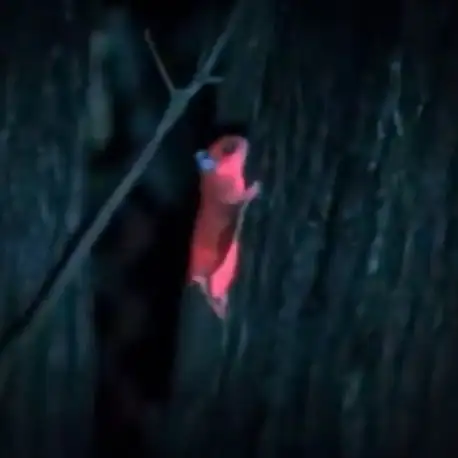A blacklight poster come to life.
Flying squirrels, those charming nocturnal creatures found in wooded areas across the United States, have a delightful secret that sets them apart from their fellow mammals. Despite their name, these squirrels don’t actually fly. Instead, they perform impressive gliding maneuvers thanks to a special membrane stretching from their front to back legs.
“Flying squirrels might be more accurately termed ‘gliding squirrels,’” explains the National Wildlife Federation. “They lack the powered flight of birds or bats, but their unique anatomy allows them to glide gracefully between trees.”
But the flying squirrel’s talents don’t end there. Under ultraviolet light, these little mammals reveal a surprising spectacle: their fur glows a vibrant pink! According to the Northwoods Wildlife Center, southern flying squirrels exhibit this glowing trait, although scientists are still unraveling its purpose.
Some theories suggest the glowing pink fur could serve as a form of camouflage or communication. “This bioluminescent feature might help these squirrels evade predators or interact with each other,” the center notes. Regardless of its function, the spectacle of their hot pink glow is nothing short of mesmerizing.
Flying squirrels are part of a broader group of glowing creatures. Museums Victoria highlights that scorpions, platypuses, and dragonfish also exhibit similar luminous qualities. This glow comes from either bioluminescence—a chemical reaction within the animal—or biofluorescence, where sunlight is absorbed and re-emitted as light.
“Whether through bioluminescence or biofluorescence, the glowing abilities of these animals are truly astonishing,” Museums Victoria observes. “This natural wonder is especially notable in creatures like the anglerfish, which uses its glow to attract prey.”
As scientists continue to explore the reasons behind the flying squirrel’s radiant pink hue, we can only marvel at these extraordinary animals and their hidden charms from afar.
